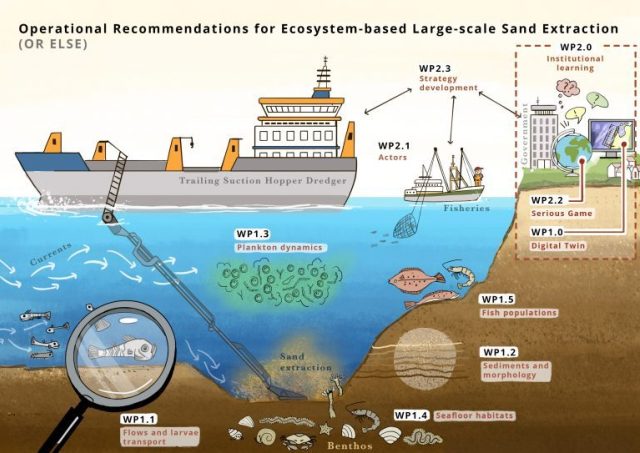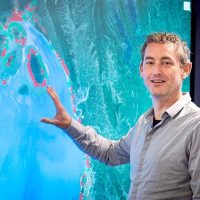Funding for study of the ecological effects of sand extraction in the North Sea
Worldwide, sand reserves are dwindling, while more and more sand is needed to protect coasts against rising sea levels. As part of the National Science Agenda, a study will be launched focusing on the ecological optimisation of sand extraction in the North Sea. To maintain the health of the marine ecosystem and to ensure it can continue to serve as a source of food. Together with about 20 other research applications, this project, in which Deltares is one of the consortium partners, was recently selected as Research along Routes by Consortia (NWA ORC call 2020/2021).

Increase in sand extraction
In this project, government authorities, fishermen, dredgers, nature organisations and researchers will collaborate on the ecological optimisation of sand extraction. Sand extraction is expected to increase dramatically for the purposes of the natural protection of sandy shores against flooding and for major infrastructure projects. Large-scale marine sand extraction results in considerable ecosystem effects as a result of changes in currents and sediment transport, and the physical disturbance of benthic habitats. Sand nourishment is, and will remain, an important component of the Dutch coastal management strategy. The Netherlands extracts relatively large amounts of sand and the country is facing the challenge of making the optimal decisions to minimise the ecological impact, while still meeting the national demand for sand.

Digital twin
The consortium will study, for the first time in collaboration with stakeholders, the administrative links between the fishing industry and sand extraction with the aim of optimising large-scale sand extraction approaches in favour of the ecology and the economy. Measurements and model predictions of hydrodynamics and morphodynamics will be integrated with species and population models in a Digital Twin of the Dutch North Sea to assess the effects on the marine environment and fishing. A Serious Game for sand extraction will be developed to arrive at operational recommendations for ecological large-scale sand extraction in the future that can be used in the Netherlands and other countries as support for policymakers, the dredging industry, nature organisations, scientists and the fishing industry in ecosystem-based sustainable sand extraction.
Arjen Luijendijk, Coastal Developments expert at Deltares: “Deltares will contribute to the development of the Digital Twin for the North Sea focusing on sand extraction. It will be used to assess the cascade of effects and to optimise designs for large-scale sand extraction. The hydrodynamic and transport modelling will build on the current three-dimensional DCSM-FM model for the North Sea.”
Consortium partners
The consortium will be led by Dr. Martin Baptist (Wageningen Marine Research) and, in addition to Deltares, it also consists of Wageningen University & Research (consortium leader), Delft University of Technology, NIOZ, University of Twente, North Sea Foundation, Van Hall Larenstein University of Applied Sciences, Breda University of Applied Sciences, Rijkswaterstaat Sea and Delta, Boskalis and Van Oord.


